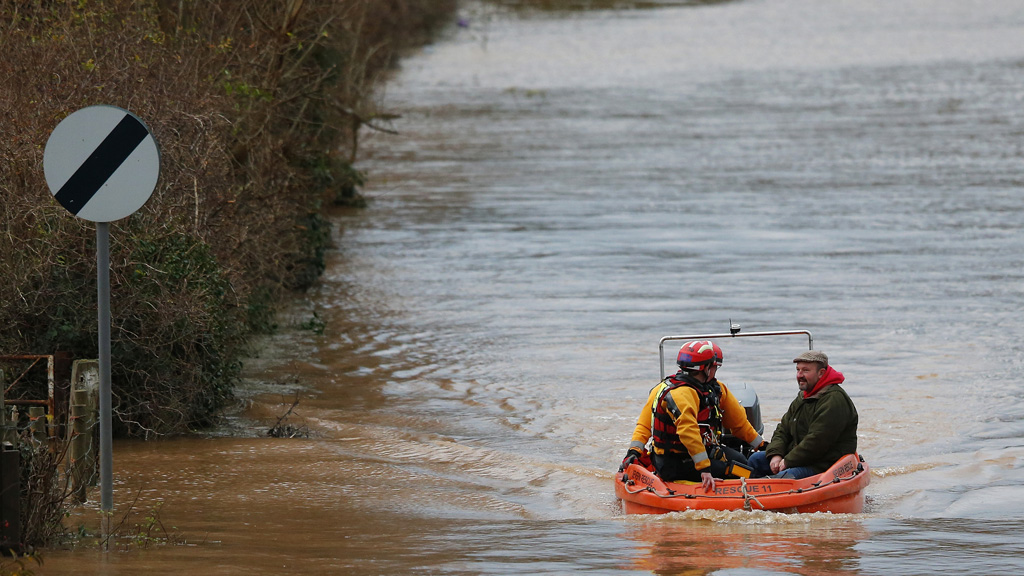2012 second wettest year on record
 Liam Dutton
Weather Presenter
Liam Dutton
Weather Presenter
The Met Office has confirmed that 2012 was the second wettest year in the UK, in records that stretch back to 1910.
1330.7mm of rain fell across the UK last year, which is just 6.6mm short of the record that was set in 2000, when 10,000 homes were flooded at 700 locations in three months.

Taking the nations of the UK separately the picture was more varied. The data revealed that 2012 was the wettest on record for England, third wettest for Wales, 17th wettest for Scotland and 40th wettest for Northern Ireland.
Last year saw a remarkable turnaround from drought to flood in a matter of months. In a report, the Centre for Ecology and Hydrology said that there is no close modern parallel to the hydro-meteorological conditions experienced during the first half of last year.

Wettest on record
During the early part of 2012, a large swathe of central and eastern England was officially given drought status by the Environment Agency, with some water companies introducing hosepipe bans for a few months.
However, from late spring onwards, the weather pattern changed as the jet stream moved to the south of the UK, bringing rain-bearing weather systems for months on end.
April and June were the wettest on record, and were then followed by the wettest summer in 100 years.
Years of wet weather in the UK is evidence of man-made climate change reports science editor Tom Clarke
The persistence of the heavy rainfall led to the ground becoming saturated as the year progressed, unable to soak up any more water.
As a result, flooding occurred frequently and hit many parts of the country, with more than 7,000 properties affected in England and Wales, according to the Environment Agency.
The data released today also showed that four of the top five wettest years in the UK have occurred since 2000.
Preliminary research from the Met Office suggests that we may have seen a change in the nature of the rain that we experience, with ‘extreme’ daily rainfall becoming more frequent.
Trend towards extreme
Professor Julia Slingo, Chief Scientist at the Met Office, said: “The trend towards more extreme rainfall events is one we are seeing around the world, in countries such as India and China, and now potentially here in the UK. Much more research is needed to understand more about the causes and potential implications.”
She added: “It’s essential we look at how this may impact our rainfall patterns going forward over the next decade and beyond, so we can advise on the frequency of extreme weather in the future and the potential for more surface and river flooding. This will help inform decision-making about the need for future resilience both here in the UK and globally.”
Weather prospects for the start of 2013 are looking quieter, with the jet stream moving northwards, allowing high pressure to build over much of the country for the first half of January.
This means that generally drier weather is expected in many places, although rain is expected to affect Scotland and Northern Ireland at times.